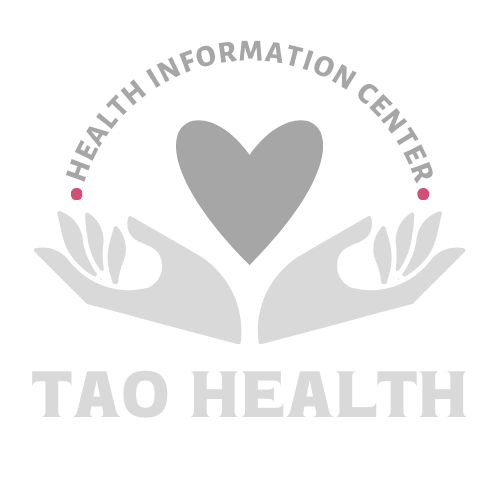Introduction: Why Healthcare Needs to Evolve
Let’s face it — healthcare isn’t what it used to be. The days of one-size-fits-all treatments and endless waiting rooms are becoming obsolete. With new challenges and opportunities emerging, applying changes in the health system has never been more crucial. But what exactly is driving this change? And more importantly, how can we adapt?
The Current State of the Healthcare System
Before we dive into solutions, it’s important to take a look at where we stand right now.
The Challenges Faced by Modern Healthcare
The healthcare system today is under immense strain. Aging populations, chronic diseases, and global pandemics are just a few of the massive hurdles we face.
The Pressure of Rising Costs
Healthcare costs have skyrocketed. Patients, insurance companies, and governments alike are feeling the pinch. Many people are forced to choose between getting the care they need and financial stability — a dilemma no one should face.
Patient Expectations in the Digital Age
In a world where you can order groceries with a few taps, patients expect the same convenience from healthcare. They want quicker appointments, personalized care, and instant access to their medical records.
Key Drivers Behind Health System Changes
So, what’s pushing these changes? Several powerful forces are at play.
Technological Advancements
From robotic surgeries to wearable fitness trackers, technology is revolutionizing healthcare. These tools are not just cool gadgets; they’re life-saving innovations that improve accuracy, efficiency, and outcomes.
The Role of Data in Healthcare
Big data is a game-changer. With the ability to analyze vast amounts of information, healthcare providers can predict disease outbreaks, personalize treatment plans, and track patient progress more effectively.
Policy and Government Influence
Governments play a huge role in shaping healthcare. Policies around insurance, patient privacy, and medical research funding significantly impact how the system operates.
The Importance of Preventive Care
Preventing illness is always better than treating it. There’s a growing emphasis on wellness programs, regular screenings, and lifestyle interventions to keep people healthy and reduce the burden on healthcare systems.
Strategies for Applying Changes in the Health System
Alright, let’s get into the nitty-gritty of how we can actually implement these changes.
Embracing Telemedicine and Remote Care
Telemedicine has exploded in popularity, especially since the COVID-19 pandemic. And for good reason!
Benefits of Telemedicine
- Convenience for patients
- Reduced exposure to contagious illnesses
- Easier access for those in rural areas
- Lower operational costs for providers
Challenges to Address
Of course, it’s not perfect. Connectivity issues, data privacy, and lack of personal touch remain significant hurdles that need smart solutions.
Integrating Artificial Intelligence
AI isn’t just for tech geeks — it’s revolutionizing healthcare.
AI in Diagnosis and Treatment
AI algorithms can analyze imaging scans with incredible accuracy, often outperforming human radiologists. They help doctors make quicker, more accurate diagnoses and even suggest treatment plans.
Ethical Concerns and Safeguards
With great power comes great responsibility. AI must be transparent, unbiased, and strictly regulated to avoid ethical pitfalls like data misuse or biased algorithms.
Improving Healthcare Accessibility
Healthcare shouldn’t depend on your ZIP code. Expanding services to underserved communities, offering sliding scale fees, and mobile clinics are all steps in the right direction.
Personalizing Patient Care
The era of personalized medicine is here. Tailoring treatments based on a patient’s genetic makeup, lifestyle, and preferences results in better outcomes and happier patients.
The Role of Healthcare Professionals in Change Management
Change isn’t easy — especially in such a high-stakes field. Healthcare professionals are the backbone of successful transformation.
Training and Upskilling
Doctors, nurses, and allied health workers need ongoing training to stay updated with the latest technologies and practices.
Collaboration Across Disciplines
Gone are the days of isolated departments. Today, healthcare requires seamless teamwork among different specialties, ensuring patients receive holistic, coordinated care.
Patient Engagement: A Critical Component
Patients aren’t just passive recipients anymore; they’re active participants.
Empowering Patients Through Education
An informed patient is a healthier patient. Education on managing chronic conditions, understanding medications, and recognizing early warning signs can make all the difference.
The Rise of Health Apps and Wearables
Fitness trackers, health monitoring apps, and wearable ECG devices empower patients to monitor their health in real-time and share data with their providers.
Future Trends in Healthcare Transformation
Looking ahead, several emerging trends promise to reshape healthcare even further.
Precision Medicine
Precision medicine uses genetic, environmental, and lifestyle factors to create highly customized treatment plans. This approach can significantly improve outcomes for diseases like cancer and rare genetic disorders.
Blockchain in Healthcare Data Security
Blockchain technology offers a secure way to store and share sensitive medical data, reducing the risk of breaches and ensuring patient privacy.
Conclusion: Embracing Change for a Healthier Tomorrow
The health system is at a pivotal moment. With the right strategies, policies, and technologies, we can build a system that is more efficient, accessible, and patient-centered. Change is never easy, but it’s absolutely necessary for the future of healthcare.
FAQs
Q1: Why is applying changes in the health system important?
Because healthcare is facing new challenges like rising costs, aging populations, and technological advancements that require innovative solutions to maintain quality care.
Q2: How does telemedicine improve healthcare?
It offers convenience, reduces costs, and increases access to healthcare, especially for people in remote or underserved areas.
Q3: What role does AI play in healthcare?
AI helps with diagnostics, personalized treatment plans, and predictive analytics, improving accuracy and efficiency in care delivery.
Q4: How can patients contribute to healthcare improvements?
By actively engaging in their care, using health apps, staying informed, and communicating openly with healthcare providers.
Q5: What are the biggest challenges to applying changes in the health system?
Resistance to change, cost of new technologies, data privacy concerns, and the need for ongoing training for healthcare professionals.
Discover how taohealth.co.nz stays ahead by embracing healthcare innovations, personalized care, and patient-centered solutions.
Visit taohealth.co.nz for expert insights on transforming your health and wellness journey today!





